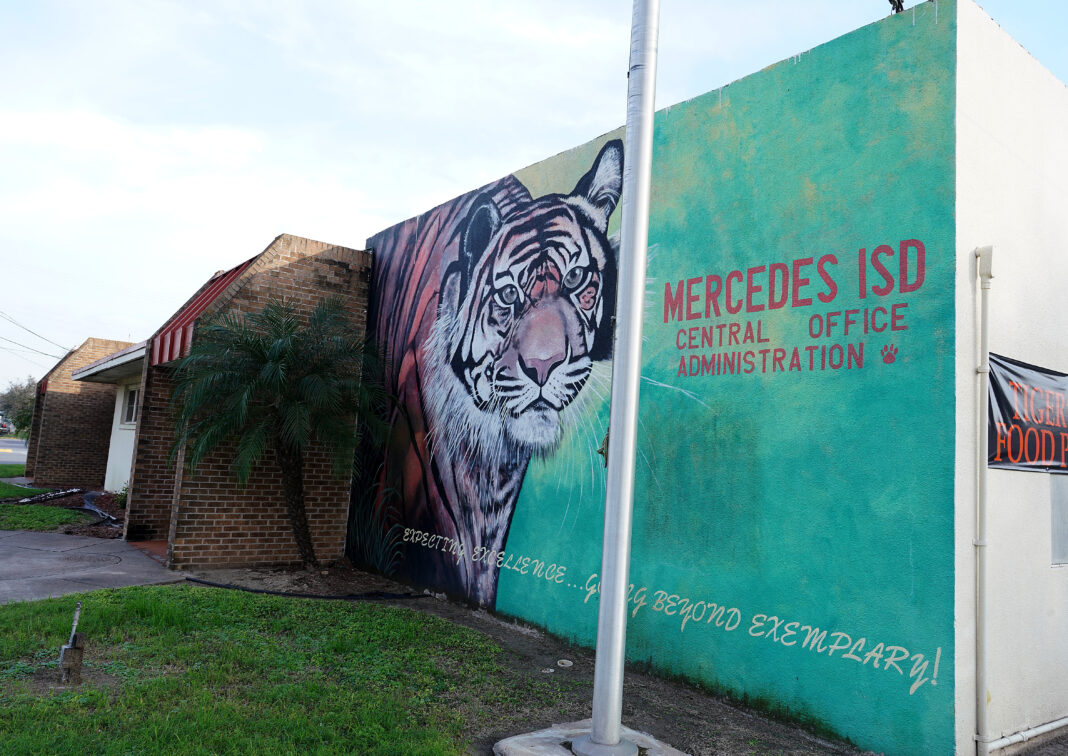The board president of the Mercedes Independent School District opposed Tuesday an item that would have required the board to record executive session discussions, arguing that the district is beyond that sort of accountability.
That item was billed by a trustee as a way to ensure accountability on the board.
Board President Oscar Hernandez, who was voted into that position in November after a tumultuous year, said Tuesday that recordings may have been an appropriate measure for previous district leadership but that they weren’t for the present one.
“Really interesting, I wouldn’t have mind the tape recordings that we might have had in the previous administration, really interesting,” he said. “But again, that’s water underneath the bridge, that boat’s long gone.”
Hernandez voiced faith in the district’s legal counsel and in its superintendent, and said he simply couldn’t see why a recording would be necessary.
“Logically, the way I’m seeing it is that I don’t see any purpose for it,” he said. “I really don’t.”
Legal counsel told the board that it currently documents those discussions via a certified agenda, and that the district would need to create protocols and procedures related to storing those recordings if the board approved the change.
Counsel noted a recording would provide a more verbatim record of those discussions.
Trustee Brian Acosta, who spearheaded the failed attempt at recordings, billed it as a way for trustees to hold each other to their word.
“Like I said, it’s for transparency purposes within this board because we’re the ones that have access to that information,” he said. “I know there’s been discussions and people may not recall or things of that nature, and I think this is a way to go back and ensure what was said and who said what. And that way the board understands, and things will be clarified.”
Trustee Rachel Treviño, the only other member on the board to support the change, seemed to think — falsely — that it would give the public access to executive session talks.
“By recording what goes on in closed session, you know a lot more than what you’re listening to out here. I think it’s very important for our staff, our community, our students that you know exactly what’s going on,” she said. “And — and if we’re not hiding anything, there’s no reason why we can’t do it. A lot of the times we have something on the agenda and we directly go into closed session, and to me, that defeats the purpose of having it on the agenda if we’re not going to discuss it out here and it’s going to be in closed session.”
Districts across the Rio Grande Valley and across the state routinely hold closed session discussions. They are legally required to do so in many instances.
Hernandez dispelled any illusions about executive session discussions being privy to the public by posing questions to the district’s attorney.
The topic endured a morbidly cruel Robert’s Rules afterlife in which Hernandez called for another motion, a trustee asked what motion he was calling for and another trustee seemed to voice a second.
The meeting moved along without that abortive second vote attempt having any effect.





